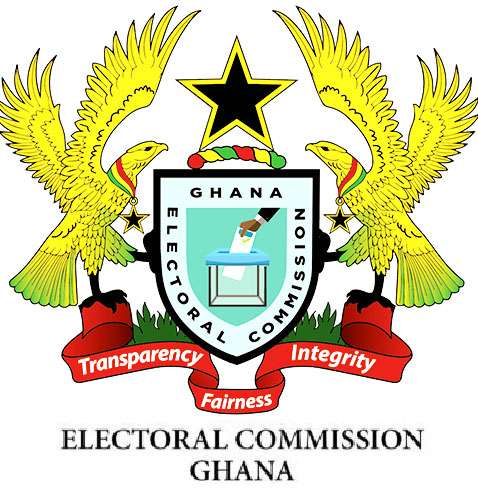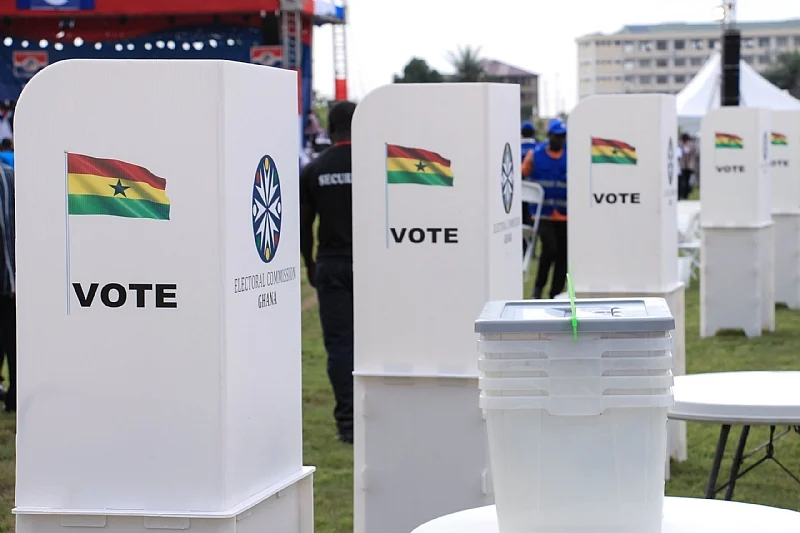Prof. Kwaku Azar Asare, a governance fellow at CDD Ghana, has expressed concern over the Electoral Commission’s (EC) recent approach to media access at collation centers, which many perceive as restrictive.
He argued that these actions cast doubt on the EC’s decision-making process and its self-proclaimed status as a “listening” institution.
Prof. Asare acknowledged the EC’s subsequent engagement with the Ghana Journalists Association (GJA) and the Ghana Independent Broadcasters Association (GIBA) following widespread public backlash.
While he welcomed this effort to address concerns, he emphasized that it does not excuse what he described as an avoidable misstep by the Commission.
According to Asare, such initial decisions undermine public confidence and raise questions about the EC’s commitment to transparency and accountability in managing Ghana’s electoral processes.
“A truly ‘listening’ institution does not impose controversial policies first and engages stakeholders only when the backlash becomes overwhelming. This reactionary approach undermines public confidence in your operations, especially with elections just days away.
“Best practices in policymaking demand transparency, inclusivity, and proactive engagement with stakeholders before rules are enacted”.
Prof. Kwaku Azar Asare
Prof. Asare further emphasized that a credible electoral process requires transparency and consultation at every stage.

He argued that it is essential to give prior notice of any proposed changes, provide stakeholders with a meaningful opportunity to voice their concerns, and carefully consider their input before making final decisions that will affect the public.
According to Prof. Asare, this consultative approach not only ensures the legitimacy of the process but also helps to build trust among the public, which is crucial, especially in the high-stakes environment of an election.
In his view, such inclusive decision-making fosters a more democratic and accountable system, one that can better withstand scrutiny and uphold the integrity of the electoral process.
EC’s Unilateral Decision-Making Slammed
Moreover, Prof. Kwaku Azar Asare pointed out that the EC’s recent actions have revealed a concerning trend of unilateral decision-making.
He highlighted several instances where the Commission’s approach raised doubts about its commitment to inclusivity and transparency.
For instance, he referenced the controversial exclusion of the people of Santrokofi, Akpafu, Likpe, and Lolobi (SALL) from parliamentary representation, a decision that sparked widespread criticism.
Additionally, he noted the EC’s decision to categorize votes cast for Akua Donkor as rejected ballots, a move that many viewed as arbitrary.
According to Prof. Asare, these actions suggest that the Commission has often operated more like an authoritarian body issuing decrees than an institution genuinely committed to listening to and engaging with stakeholders.

This pattern of decision-making, he argued, undermines public trust in the EC and raises serious questions about its role in ensuring a fair and transparent electoral process.
“These decisions, issued without sufficient consultation or explanation, have fueled public suspicion and raised the political temperature unnecessarily.
“The last-minute attempt to engage stakeholders on media access is emblematic of this pattern. By first announcing a restrictive policy—one that would have limited transparency and potentially hindered accountability in the collation process— you needlessly exacerbated tensions”.
Prof. Kwaku Azar Asare
Prof. Asare observed that the EC only attempted to address the situation after criticism had reached a boiling point, seeking to correct its course through engagement.
However, he argued that this reactive approach fails to inspire confidence in the Commission’s dedication to fairness or its capacity to manage the electoral process impartially.
Asare stated that by waiting until public outcry became overwhelming, the EC undermined its credibility and demonstrated a lack of proactive leadership in maintaining trust. “With elections imminent, you must prioritize transparency and inclusivity over unilateralism. No more fiats”.
In light of this, Prof. Asare urged the EC to move away from its top-down approach and instead adopt decision-making practices that uphold democratic principles.
He emphasized that, at this critical moment, the Commission must prioritize rebuilding trust rather than further diminishing it.
According to him, this can only be achieved by ensuring that all stakeholders are genuinely involved in the decision-making process for all key issues. “Anything less risks undermining the credibility of the electoral process and the peace of the nation”.
READ ALSO: Israel-Hezbollah Ceasefire Takes Effect

















